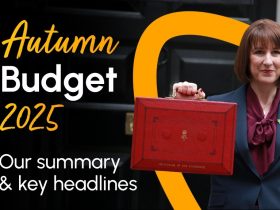Auditors are the specialists who audit financial records and reporting, examine the records, and determine their legality and validity per generally accepted accounting principles, government legislation, and tax compliance.
As a financial auditor, you have the accreditation to work in accounting departments or audit firms. There are several other responsibilities of an auditor.
This comprehensive guide gives a clearer picture of how to become a financial auditor in the UK.
Table of Content
Who is a financial auditor?
A financial auditor conducts an independent audit of accounts as required by the law unless the company qualifies for an audit exemption. A financial auditor reports on whether the organisation’s financial statements are free from material misstatements.

When a company or an organisation that is part of a larger group passes the audit thresholds, they are legally required to be audited by a certified financial auditor. The current audit thresholds include the following:
● Turnover: £10.2m or less
● Assets worth: £5.1m or less
● Employees: 50 or less
If a company fulfils either two of the following criteria, they get an audit exemption unless the shareholders, investors, or regulators ask for it.
Qualification and training
To become a financial auditor, you need at least a graduation degree in accounting or finance and other subjects like economics, business, IT, and computing. However, most companies hire auditors who are members of:
● Association of Authorised Public Accountants (AAPA)
● Association of Chartered Certified Accountants (ACCA)
● Institute of Chartered Accountants in England and Wales (ICAEW)
● Institute of Chartered Accountants of Scotland (ICAS)
If you have a degree, you can do a graduate scheme. The National Audit Office offers a three-year training scheme for graduates in any subject.
You can obtain an accounting certification from a recognised professional accounting body during the training period. To conduct audits in the public sector, you need to be a member of The Chartered Institute of Public Finance and Accountancy.
Practical experience in accounting or financial areas gets priority when hiring financial audits that you can get through a full graduate level University course, an apprenticeship, training with a professional body, or directly applying as a trainee auditor in a company. You can also get yourself a job with experience in finance, banking, or HR roles.
You can progress to becoming a company finance manager with your hard work, dedication, and experience. However, if you want freedom in your job, you can consider setting up an auditing firm or a freelance auditor. You need to set up a website and provide all the details about your expertise, qualifications, skills, location, etc. A business, for instance, looking for an auditor near me on the search engine can find you on the list if your location is updated.
Skills and knowledge of an auditor
Having qualifications and experience is insufficient to establish yourself as a successful financial auditor. It needs a set of the right skills and knowledge, like
● A thorough understanding of critical areas like risk, compliance, and financial legislation
● In-depth knowledge of different accounting software
● Impeccable organisational and analytical skills
● Can work under pressure and on tight deadlines
● Ability to work in a team
● Proficient at detailed report writing and presentation
● Acquired exceptional financial research training and abilities
● Paying attention to detail and having problem-solving skills
● Good in financial planning and ability to understand business needs
● Good communication skills
● Efficient in time management
Responsibilities of a financial auditor
A financial auditor audits or reviews an organisation’s financial statements, documents, accounting entries, and data. They gather information from financial reporting systems, account balances, cash flow and income statements, balance sheets, tax returns, and internal control systems. Auditors then review this information and ensure there are no material misstatements or errors in the company accounts, and they report financial data accurately and fairly.
They speak with multiple departments and teams to gather data and gain insights into the company’s purpose, operations, and financial reporting systems. They can interview an employee to comprehend what accounting processes and financial tasks are currently happening in the business and which processes or standards are established or implemented in the organisation.
Upon gathering all necessary evidence to support the financial statements, auditors need to give an opinion on their findings. This certificate is submitted to the HMRC with the tax return, to the Companies House, and shareholders with other documents. They are also responsible for giving necessary feedback to the organisation to improve its business processes, enhancing efficiency and overall performance.
These individuals are not responsible for reconciling accounts or making accounting entries for an organisation; instead, they can provide necessary details in correcting errors and accounting fraud to the owners or finance head.
Mistakes that every financial auditor must ignore
● Imposing opinion without proper facts
● Creating reports as per findings but failing to provide evidence
● Lack of in-depth analysis while quickly assessing the audit checklist
● Focusing on the documentation without prioritising fact checks
● Overlooking genuine faults in search of non-compliant errors
● Allowing cost reduction to starve the audit
Salary and prospects
The basic salary of an auditor can be £25,000 per year, and it goes up with experience. A senior auditor or audit manager in the UK can earn nearly £50,000 annually to £70,000 and above.
According to Glassdoor, the total pay of an auditor in London is around £45,502 per year, with an average salary in the UK being £41,981 per year. Additionally, they can earn extra bonuses, commissions, tips, and profit sharing. The salary of an auditor mainly varies with the location, business size, type of industry, and financial complexity.
Typically, auditors must work from Monday to Friday 40 hours a week. You may need to work longer hours during busy periods or meeting deadlines.

Conclusion
Several companies in the UK are searching for a financial auditor to investigate, audit and take the financial records into account for measuring accuracy and fairness in their financial reports and business processes. If you are planning to apply for this role, you need to acquire proper education and qualifications, adopt new skills and be tech savvy to operate accounting software, and gather experience.










